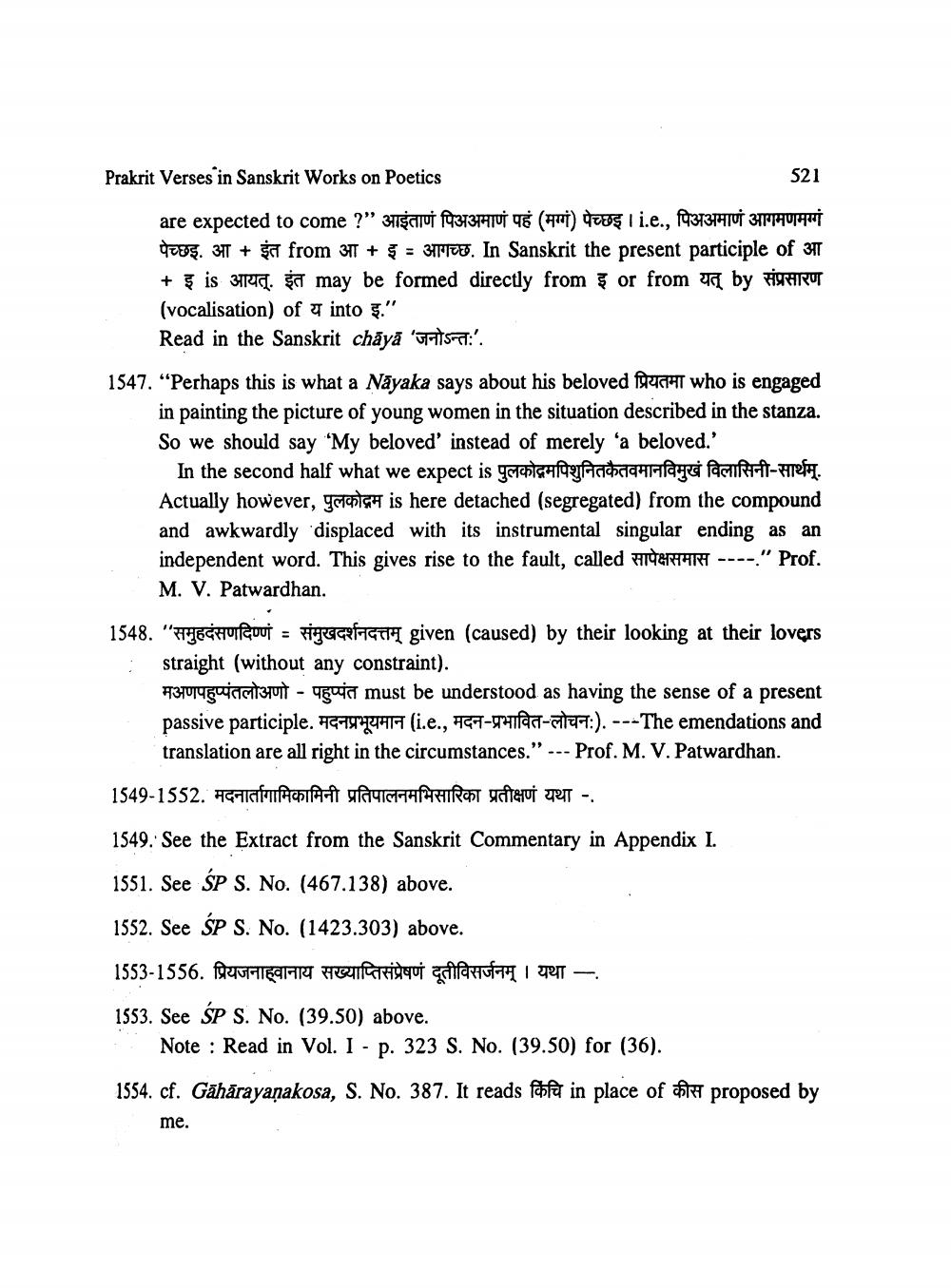________________
521
Prakrit Verses in Sanskrit Works on Poetics
are expected to come ?" आइंताणं पिअअमाणं पहं (मग्गं) पेच्छइ। i.e., पिअअमाणं आगमणमग्गं पेच्छइ. आ + इंत from आ + इ = आगच्छ. In Sanskrit the present participle of आ + इ is आयत. इंत may be formed directly from इ or from यत् by संप्रसारण (vocalisation) of य into इ." Read in the Sanskrit chaya 'जनोऽन्तः'.
1547. "Perhaps this is what a Nayaka says about his beloved PRACHT who is engaged
in painting the picture of young women in the situation described in the stanza. So we should say 'My beloved' instead of merely a beloved.' _In the second half what we expect is पुलकोद्गमपिशुनितकैतवमानविमुखं विलासिनी-सार्थम. Actually however, goontoe is here detached (segregated) from the compound and awkwardly displaced with its instrumental singular ending as an independent word. This gives rise to the fault, called सापेक्षसमास ----" Prof.
M. V. Patwardhan. 1548. "समुहदंसणदिण्णं = संमुखदर्शनदत्तम् given (caused) by their looking at their lovers
straight (without any constraint). मअणपहुप्पंतलोअणो - पहुप्पंत must be understood as having the sense of a present passive participle. मदनप्रभूयमान (i.e., मदन-प्रभावित-लोचन:). ---The emendations and translation are all right in the circumstances." ..- Prof. M.V. Patwardhan.
1549-1552. मदनार्तागामिकामिनी प्रतिपालनमभिसारिका प्रतीक्षणं यथा -. 1549. See the Extract from the Sanskrit Commentary in Appendix I. 1551. See $P S. No. (467.138) above. 1552. See SP S. No. (1423.303) above. 1553-1556. प्रियजनाह्वानाय सख्याप्तिसंप्रेषणं दूतीविसर्जनम् । यथा - 1553. See SP S. No. (39.50) above.
Note : Read in Vol. I - p. 323 S. No. (39.50) for (36). 1554. cf. Gāhārayanakosa, S. No. 387. It reads festa in place of or proposed by
me.




